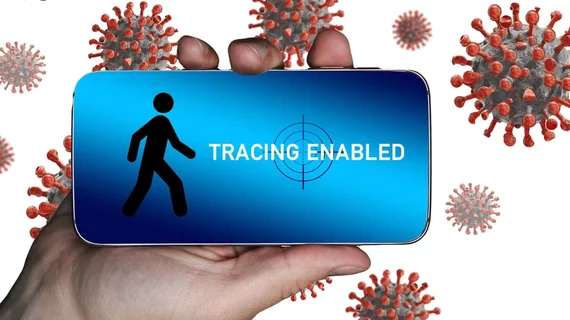Is a COVID showdown ahead between Google–Apple and governments?
The hotly anticipated Apple–Google COVID-19 contact tracing technology is tiptoeing closer to its promised May release. When it gets here—tapping Bluetooth to flag smartphone users encountering infected individuals—many governments will have to choose between Big Tech and their own teams.
That’s because governments around the world have their own contact-tracing apps already up and running, and several U.S. states have indicated they like their own solutions just fine.
According to reporter Aaron Holmes of Business Insider, the biggest technical difference between the two is the way each one’s software will store data.
“Most government-developed contact tracing apps would store people’s contact information and COVID-19 status on a central, government-owned server,” he points out. “Meanwhile, the ‘decentralized’ technology from Google and Apple only stores information on individuals’ phones, unless they opt to send it to health authorities.”
Holmes also notes that the promises Apple and Google have made on privacy may clash with governments’ policies on that issue.
And look for the private sector to have it all over the public when it comes to ease of use.
Of course, either way, the tech is aimed at aiding, not replacing, human workers tasked with making the connections. (That part of the process has problems of its own.)
But it’s the cozying-up by two of the biggest players in Big Tech that has theories swirling.
Adding to that sort of speculation is clearly not what Holmes is interested in. His article is an appropriately journalistic look at the technical pros and cons governments are soon to weigh.
Still, there are facts in his reporting ripe for reading—and reading too much—into.
“Apple and Google have teased features that could quickly expand the number of users: For one, the technology can be pushed to users’ phones without them needing to download an app,” he reports. “The tech could also notify people that they came in contact with COVID-19 before they’ve even downloaded any public health apps …”
To read the rest at Business Insider, click here.

